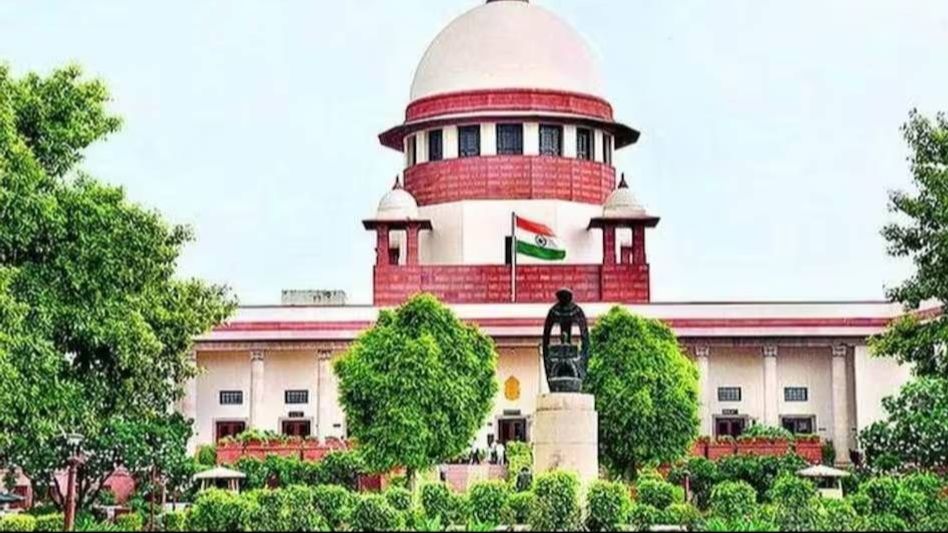Supreme Court hearing on Citizenship Act: Government should have some autonomy for nation's interest
The Supreme Court today said that the government must have some autonomy to make compromises in the interest of the nation.
 The Supreme Court today said that the government must have some autonomy to make compromises in the interest of the nation.
The Supreme Court today said that the government must have some autonomy to make compromises in the interest of the nation.
The Supreme Court today said that the government must have some autonomy to make compromises in the interest of the nation.
The statement was made by CJI DY Chandrachud during the second day of the hearing of the petition challenging Section 6A of the Citizenship Act, with regards to the issue of illegal immigration in Assam.
While stating that several North-East States are still affected by insurgency, the CJI said that some autonomy must be given to the government to make compromises in the interest of the nation.
‘We must also give the government that latitude. Even today we have States in North East, we may not name them, but there are States affected by insurgency, affected by violence. We have to give the government that leeway to make adjustments necessary to save the nation’, he said.
The five judge bench also included Justices Surya Kant, M.M. Sundresh, J.B. Pardiwala, and Manoj Misra. Section 6A, a unique provision added to the 1955 Act, was enacted as part of the 'Assam Accord' signed on August 15, 1985.
Senior advocate Shyam Divan appearing on behalf of the petitioner, the Assam Sanmilit Mahasangh, put forth the argument that Section 6A operates in a ‘blanket manner’ and incentivises illegal immigrants to continue staying in Assam in violation of the law. ‘Assam and other immediate neighboring border states form a homogeneous single class. Singling out Assam is impermissible’, Diwan pointed out.
In response, the Chief Justice enquired if the Parliament could let the ‘strife’ continue in Assam on the ground that the law would discriminate among States.
‘Can the Parliament say that we are doing this to bring about peace in a strife-ridden State? Or should we continue that strife merely because we will be discriminating between States? The situation of Assam in 1985, there was so much violence. Any solution they would have found is bound to be an inexact solution’, the Chief Justice said.
Earlier, Solicitor General Tushar Mehta, appearing for the Central government, informed the apex court that about 5.45 lakh people benefitted from the provision as per a parliamentarian. He also clarified that Section 6A stopped being operational after 2013. The bench then asked for an official reply on how many people were declared as foreigners prior to 2013.
The hearing for the petitions challenging the Section 6A of the Citizenship Act would continue tomorrow as well.
The hearing of the apex court in this matter is going on the basis of one petition which has been compiled out of about a hundred petitions that had been filed in this matter.
The Assam Sanmilit Mahasangh and several other organisations, acting as petitioners, are pushing for the cut off date base year for citizenship be made to 1951 for Assam as the rest of the country. On the other hand, there are other parties which are pushing for the cut off date base year to remain as 1971, such as the Asom Gana Parishad, All Assam Students Union, AAMSU, AIUDF, and others.
Apart from the various petitioners, Assam government's advocate general Devajit Saikia was also present at the apex court as part of the hearing.
The Assam Sanmilita Mahasangha, a Guwahati-based civil society organisation, filed a petition in November 2012 challenging Section 6A saying that it discriminates against other Indian citizens by permitting different cut-off dates for regularising illegal migrants entering Assam and the rest of the country.
It further sought the apex court’s intervention to ensure the updation of the National Register for Citizens (NRC) of Assam by taking into account the details available following the 1951 National Census instead of the electoral rolls before March 24, 1971, which is the cut off date for Assam.
In December 2014, the Supreme Court framed 13 questions covering various issues raised against the constitutionality of Section 6A. Here the court specifically questioned whether the provision dilutes the political rights of the citizens of Assam. The apex court further questioned whether Section 6A is a violation of the rights of the Assamese people to conserve their cultural rights. The Supreme Court further questioned if an influx of illegal migrants in India constitutes ‘external aggression’ and ‘internal disturbance’, among others.
A three-judge Bench of the apex court referred the case to a Constitution Bench in 2015.
Noteworthy here is that Section 6A is a special provision inserted into the 1955 Act in furtherance of a Memorandum of Settlement called the ‘Assam Accord’ signed on August 15, 1985, by the then Rajiv Gandhi Government with the leaders of the Assam Movement to preserve and protect the Assamese culture, heritage, linguistic and social identity.
This accord, signed by the Rajiv Gandhi Government and the Assam Movement leaders, aimed to preserve Assamese culture, heritage, and social identity.
The provision came after a six-year agitation by the All Assam Students Union (AASU) to identify and deport illegal immigrants, primarily from neighbouring Bangladesh. According to Section 6A, foreigners who resided in Assam before January 1, 1966, would have the same rights and obligations as Indian citizens.
However, those who entered the state between January 1, 1966, and March 25, 1971, would have the same rights and obligations, barring the right to vote for 10 years.
Section 6 A also in all essence establishes March 24, 1971, as the cut-off date for entry into the state, which basically means that anyone entering Assam later would be branded as an “illegal immigrant”.
Copyright©2024 Living Media India Limited. For reprint rights: Syndications Today









